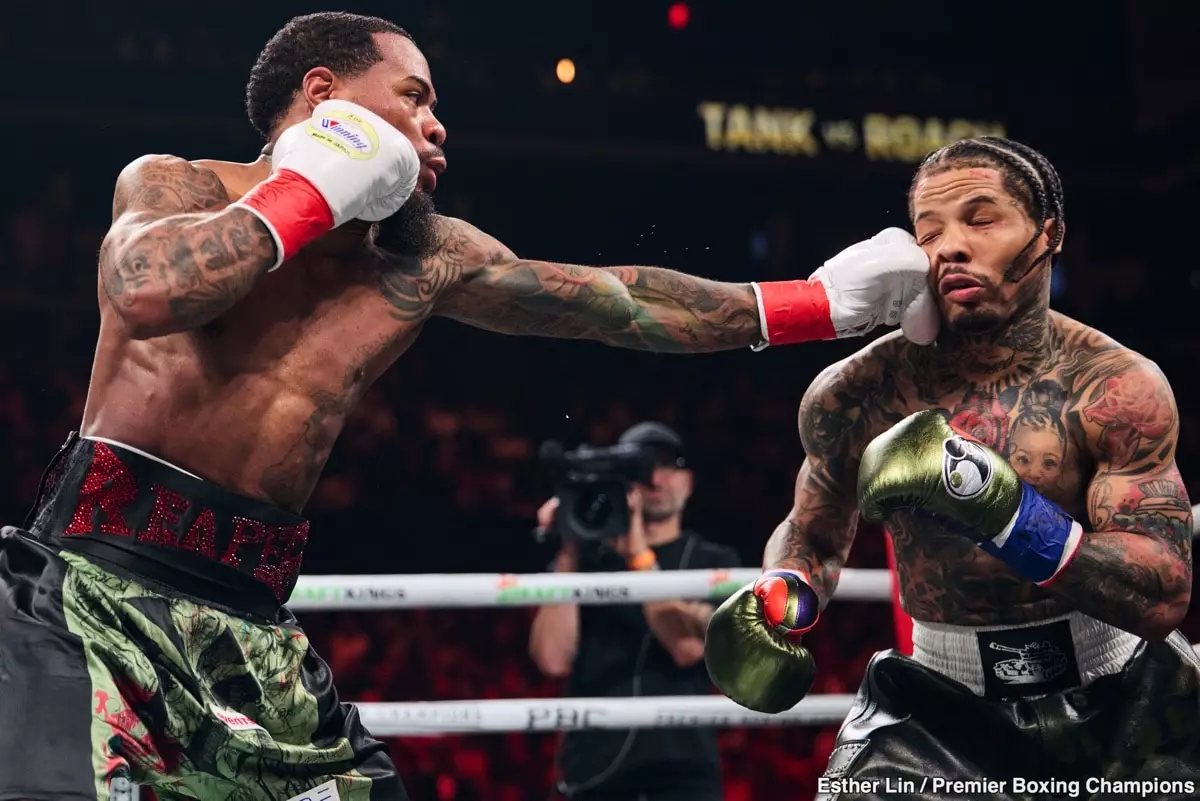In the world of boxing, few events generate as much buzz as a crossover star taking on a professional contender, regardless of the legitimacy or competitiveness of the bout. The upcoming exhibition between Gervonta “Tank” Davis and Jake Paul epitomizes this phenomenon. While promotional hype has skyrocketed the visibility of this event, a critical eye reveals a chasm of disparity beneath the surface. Davis, a bona fide world champion with an impressive skill set and a track record of elite performances, is set to face a character whose boxing credentials are questionable at best. The event’s allure lies primarily in its entertainment value and the star power involved, rather than technical merit or sporting significance.
Exhibition matches like this serve a different purpose than traditional bouts—they are spectacles designed to attract viewership, generate conversation, and boost earnings. However, they also threaten to distort the sport’s integrity by prioritizing entertainment over genuine competition. While fans may get to see some dramatic moments, the result—regardless of outcome—is a forgone conclusion for many discerning viewers. Davis’s reputation as a talented and dangerous fighter should not be overshadowed by a superficial narrative suggesting Paul could somehow challenge him on equal footing. This mismatch reinforces the idea that boxing’s premier fighters are often sidelined in favor of spectacle-driven events that capitalize on viral fame, rather than setting the stage for meaningful sporting contests.
Behind the Curtain: Fighter Politics and Unspoken Rivalries
Despite the glitz and glamour, the business side of boxing often paints a different picture. Gervonta Davis’s focus appears to be driven heavily by financial incentives rather than the pursuit of legacy or athletic challenge. His postponed rematch against Lamont Roach Jr., a fighter who pushed him hard in their previous encounter, exemplifies how monetary considerations take precedence over sporting credibility. Roach’s public disappointment and accusations of avoidance highlight a troubling trend: fighters and promoters frequently prioritize payday over the integrity of rivalries and career development.
Roach’s frustration isn’t merely about losing out on a rematch; it signifies a broader issue within modern boxing—opportunities are often sacrificed at the altar of greed. Roach, with a solid record and a legitimate claim to a higher-profile rematch, finds himself sidelined as Davis pursues more lucrative endeavors. His candid social media critique underscores a dissatisfaction with the sport’s current landscape, where strategic ducking and behind-the-scenes negotiations overshadow merit and perseverance. The sport’s reliance on star-driven narratives risks alienating genuine contenders and eroding the integrity that once defined boxing’s golden eras.
The Future Paths: Contentment or Renewal?
Lamont Roach Jr.’s declaration of an agreement to fight Shakur Stevenson reveals a deeper desire for meaningful competition. Instead of waiting for a rematch with Davis that may never happen, Roach is pivoting towards other top-tier fighters to elevate his career. This decision reflects a pragmatic approach—adaptability in a sport increasingly driven by marketability rather than merit. Roach’s willingness to shift focus could rejuvenate his prospects, offering fans a fresh and competitive battle that aligns more closely with boxing’s traditional values of skill and resilience.
The possibility of a showdown with Stevenson signals a potential shift in the sport’s landscape—fighters less willing to accept stagnation and more eager to chase real challenges. Yet, for many, the shadow of unfulfilled rivalries like Davis vs. Roach Jr. lingers as a cautionary tale about the sport’s commercialization. Will boxing reclaim its identity as a meritocratic arena, or continue to be overtaken by spectacle-driven mismatches? The answer hinges heavily on how fighters, promoters, and fans alike prioritize integrity over spectacle in the long run.
The Broader Implications: Commercialism vs. Classic Valor
The Davis vs. Paul event exemplifies the ongoing tension within boxing—between commercial success and sporting authenticity. While the spectacle draws in demographics that traditional boxing may struggle to attract, it raises questions about the sport’s future direction. Is boxing becoming a platform for viral moments and social media icons, or does it still hold the potential to showcase the greatest fighters in meaningful, competitive battles?
From a critical perspective, the attraction to these high-profile exhibitions is understandable, but it threatens to undermine the very foundations that have made boxing a revered sport for over a century. Floyd Mayweather’s legacy was built on strategic matchups that balanced entertainment with sport, but the modern landscape seems increasingly skewed toward fleeting fame. If fighters like Davis continue to prioritize lucrative exhibitions over the grind for titles and legacy, boxing risks becoming a spectacle of superficial matches rather than a genuine contest of skill and endurance.
The upcoming fight between Davis and Paul may boost Netflix’s ratings and generate social media buzz, but it also serves as a stark reminder of where the sport currently stands. Will boxing be able to rally around traditional values of competition, or will it capitulate to the pressures of virality and instant gratification? For the sport’s credibility and longevity, the answer must lean toward a recommitment to genuine competition—something only achievable when fighters prioritize integrity over immediate financial gains.


Leave a Reply